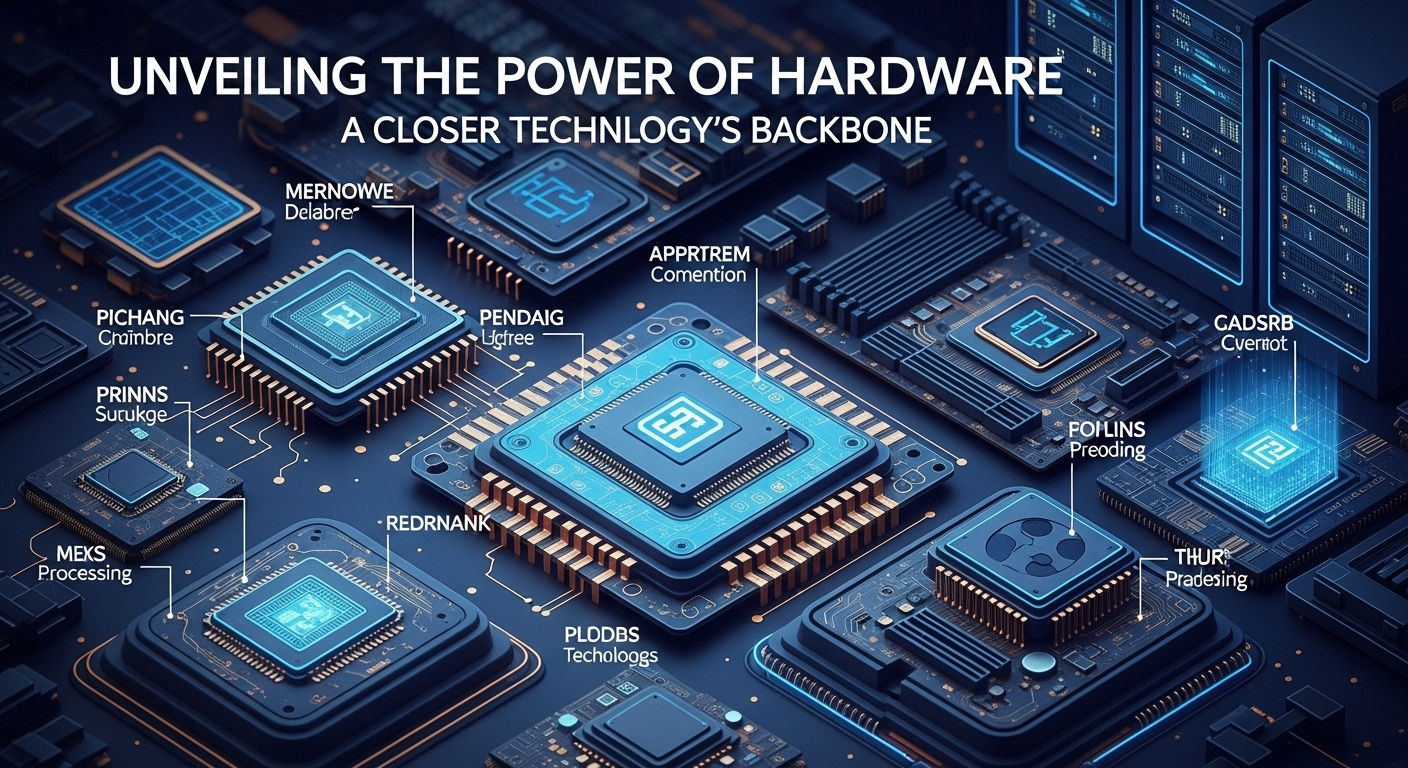## Understanding Hardware: The Backbone of Technology
In today’s digital age, hardware plays a crucial role in powering the devices and systems we rely on daily. From smartphones and laptops to servers and industrial machinery, hardware is the physical component that enables the functionality of software and applications. In this blog post, we will delve into the world of hardware, exploring its history, significance, applications, and future trends.
### History of Hardware
The history of hardware can be traced back to the early days of computing when machines were massive and operated using vacuum tubes and punch cards. The evolution of hardware has been marked by significant advancements in miniaturization, speed, and efficiency. The invention of the transistor in the 1940s revolutionized the field, leading to the development of integrated circuits and microprocessors that paved the way for modern computing.
### Significance of Hardware
Hardware forms the foundation of technological innovation, enabling the creation of devices that have transformed how we live, work, and communicate. Without hardware, software would have no means of execution, and the digital world as we know it would cease to exist. From gaming consoles and medical devices to autonomous vehicles and smart appliances, hardware is the backbone that powers these technologies and drives progress across industries.
### Applications of Hardware
The applications of hardware are vast and diverse, spanning various sectors and domains. In the consumer electronics industry, hardware is used to create smartphones, tablets, and wearable devices that enhance connectivity and productivity. In the healthcare sector, hardware plays a critical role in the development of medical instruments, imaging systems, and prosthetic devices that improve patient care and outcomes. In the automotive industry, hardware enables the production of electric vehicles, autonomous driving systems, and advanced safety features that redefine transportation.
### Future Trends in Hardware
Looking ahead, the future of hardware is poised for exciting developments that will shape the next generation of technologies. The rise of artificial intelligence (AI) and machine learning is driving the demand for specialized hardware such as graphics processing units (GPUs) and application-specific integrated circuits (ASICs) optimized for complex computations. Quantum computing is another frontier that holds promise for solving complex problems that are beyond the capabilities of classical computers, opening up new possibilities in fields like cryptography, materials science, and drug discovery.
Advancements in materials science and nanotechnology are leading to the development of more energy-efficient and compact hardware components, enabling the creation of smaller and more powerful devices. The Internet of Things (IoT) is driving the proliferation of connected devices that rely on hardware for sensing, processing, and transmitting data, ushering in a new era of interconnectedness and automation.
### Conclusion
In conclusion, hardware is the unsung hero of the digital age, powering the devices and systems that have become indispensable in our lives. As technology continues to evolve at a rapid pace, the role of hardware will remain crucial in enabling innovation and pushing the boundaries of what is possible. By understanding the history, significance, applications, and future trends of hardware, we gain a deeper appreciation for the intricate mechanisms that drive the digital revolution.


